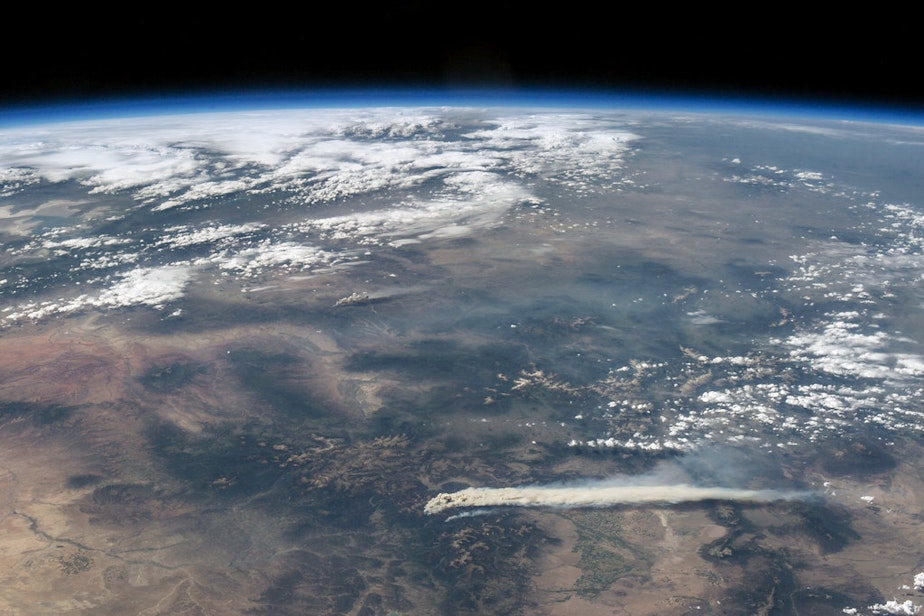How to talk to a flat-earther

When Lee McIntyre first showed up at the Flat Earth International Conference, he put his badge on and kept his mouth shut.
The mood, he said, was celebratory. After all, many flat-earthers, as they’re called, are radicalized over online videos and don’t have a lot of opportunities to meet up with people of like minds.
McIntyre is a philosopher of science at Boston University who wanted to see science denial in its most elemental form.
He said this group claims their views are based on evidence and they think of themselves as scientists, like one man who gave a presentation at the conference.
“He said when he got up on stage that he didn’t have any university training in science, but he was wearing a white lab coat, which was all the authority that he needed,” McIntyre said, speaking to Bill Radke on KUOW’s The Record.
Bill Radke interviews Lee McIntyre on 'The Record,' June 3, 2019.
Sponsored
By the second day, McIntyre was talking more and more with the other attendees about their beliefs.
He had a strategy: don’t go in with his evidence to convince the flat-earthers they were wrong. Instead, he had a “philosopher’s question” for them: What evidence would it take to convince you that you’re wrong? They couldn’t answer him.
“That was my point: If you’re view is based on evidence, you should have something that your theory rules out,” he said. “Scientists are wired up to such that they’re going to look for evidence, they care about evidence and they’re willing to change their mind when the evidence doesn’t go their way.
"That’s a big distinction for a science denier or a pseudo scientist, who doesn’t reason that way. I was trying to get them to understand that what they were doing was not science.”
McIntyre argues that flat-earthers and other science deniers, like in regards to climate change and anti-vaccinations, use the same basic reasoning strategy: cherry picking evidence, favoring their own experts and discrediting others. Their thinking gets reinforced by other people found in communities on the internet.
Sponsored
Believing in a flat earth may seem innocuous, but McIntyre cautions against being dismissive of it.
“If you don’t fight back against the conspiracy theory of a flat earth, where is the goal post now? If you let that go, what else are you going to let go? I think bad reasoning has a way of spreading to other things,” he said.
The key, he said, is to engage, listen and work the facts in where you can. He also said scientists need to embrace uncertainty as a strength and stop apologizing for it.
“People don’t necessarily form their beliefs – even about empirical matters, based on data. They do it based on trust. And the only way you build trust is one-on-one,” he said.
Produced for the web by Kara McDermott.




